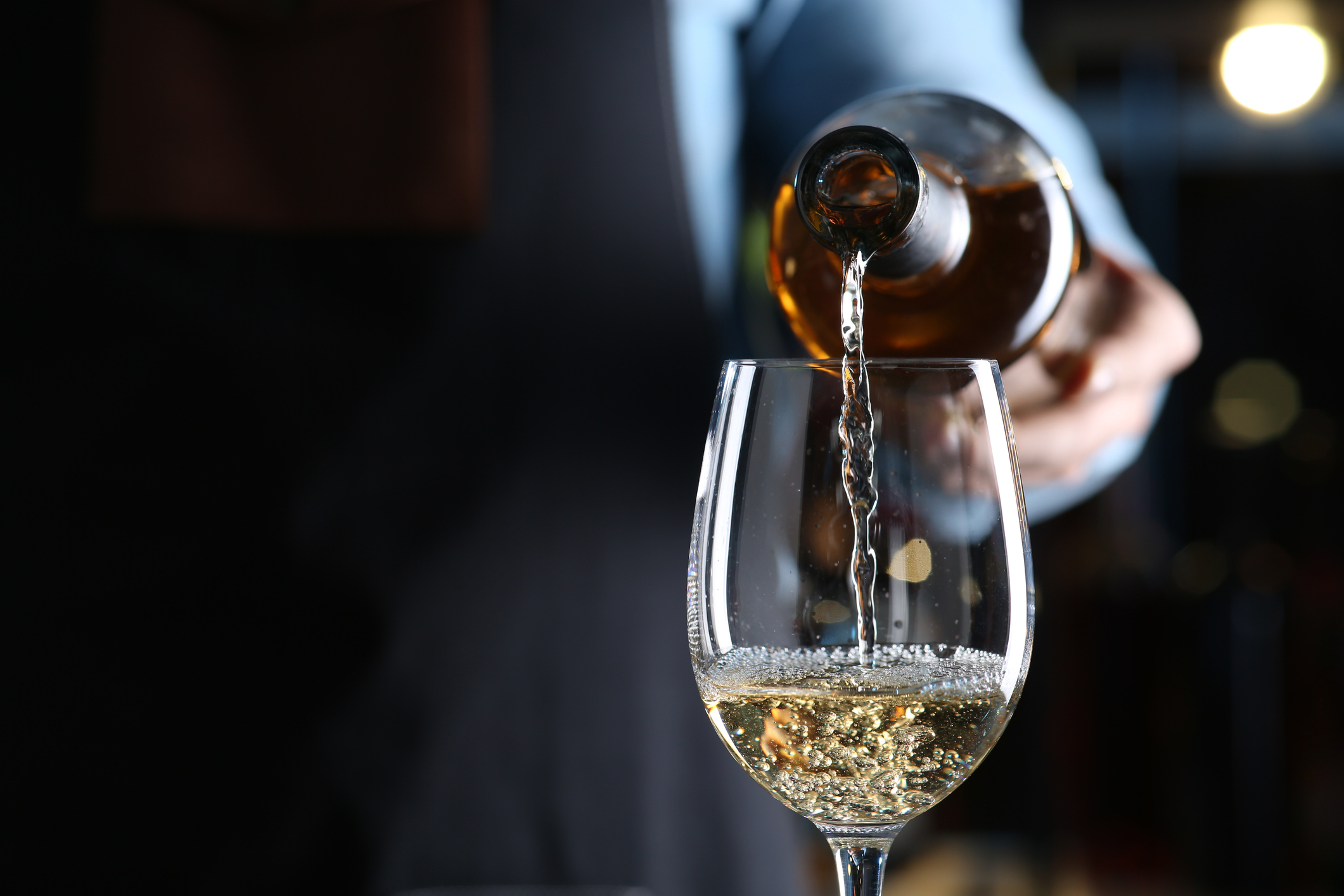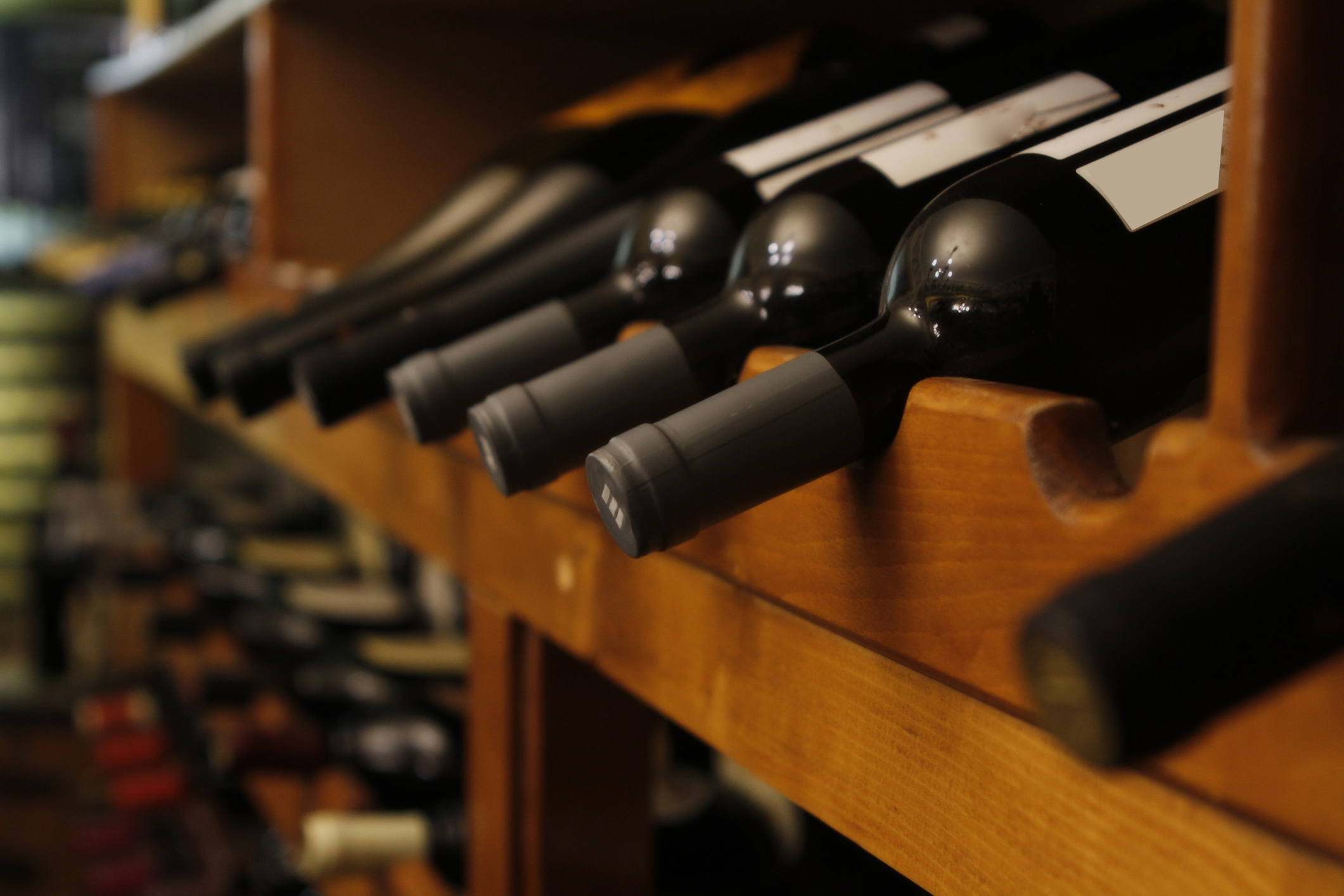Are you storing your wine correctly? Whether you’re an avid wine enthusiast or are just starting to build your collection, knowing how to store wine properly is crucial to preserving its flavor, aroma, and overall quality. The proper storage conditions ensure that each bottle ages as gracefully as possible, meaning you can enjoy it to its full potential whenever you decide to uncork it.
If you’re a casual wine drinker, at-home storage might not be a significant concern. You might grab your favorite low-cost wine from a local liquor store, pop it in the fridge, and call it a day. However, if you have more than three or four bottles of fine wine piling up on your personal wine rack, learning how to store wine at home can make a world of difference in both preserving and enjoying your vino of choice.
In this article, we’ll guide you through the fundamentals of wine storage, addressing common questions and concerns that many people encounter along the way.
Related: Moving Wine Collections: A Step-by-Step Guide
How to Store Wine At Home: A How-To Guide
For optimal at-home wine storage, consider the following steps:
Evaluate the wine that you want to put in storage
Before you start rearranging your apartment or contemplating what part of your house will become your personal wine haven, it’s important to consider what type of wine you even want to put in long-term storage. Understanding the characteristics of your bottles and your own personal taste and preferences will help you make informed decisions regarding storage options. Ask yourself the following questions:
- What type of wine do you need to store? Is it fine wine?
- How much wine do you have, and how long will you store it?
- Do you plan to keep it in your own home? Do you have access to a basement or a wine cellar?
- How will your wine display fit into your everyday life? Do you plan to use it as a decor piece?
Answering these questions will help you better understand your needs, making your future wine storage decisions that much easier.

How long can I keep wine in storage?
We’ll answer this question with another question: What wine are you planning to store? Similarly to finding the right wine storage options, you need to assess the bottles you’ll be working with first. That’s because the length of time you can keep wine in storage depends on the type of wine itself. While some wines are meant to be enjoyed young and fresh, others have the potential to age, develop, and improve over years— even decades! Generally, everyday table wines are best consumed within a few months or years, while fine wines with high tannins and acidity can gracefully age for much longer.
Red Wines: Most bottled red wine can only spend up to three years in storage
White Wines: Most bottled white wine can only be stored for one or two years
Related: The Complete Guide to Storing Food in the Fridge
Optimal Conditions for At-Home Wine Storage
Once you’ve narrowed down what bottles will be tucked away in storage for the foreseeable future, it’s time to narrow down a few spots around your house, apartment, or condo where wine could reasonably be stored. But what conditions does wine require for optimal storage? Instead of shoving a stand-up wine rack in your kitchen or dining room, let’s review what exactly makes a room, a corner, or even a storage space wine-ready:
Avoid direct sunlight
Did you know: Sunlight can cause sulfur-containing amino acids to oxidize, which in turn can change the flavor of the wine. Store your wines away from light, including direct sunlight and fluorescent fixtures. If your wine has a funny smell, ultraviolet rays have likely caused the wine to become “lightstruck.”
White wine stored in clear bottles is especially susceptible to direct sunlight because the glass offers less protection than darker bottles. Be aware that incandescent light can also impact the integrity of the wine.
Ideally, storing your wine in a dark and dry place is best to preserve its great taste. But of course, we don’t all have the luxury of having an expansive wine cellar at our disposal. If you can’t keep a bottle entirely out of direct sunlight, consider keeping it inside a box or wrapped lightly in cloth. If you opt for a cabinet to age your wine, be sure to select one with solid or UV-resistant doors.
Ensure a consistent temperature and humidity
In addition to avoiding harsh UV rays, it’s also important to keep your wine bottles at an optimal storage temperature. Fluctuations in humidity and temperature can wreak havoc on any type of wine. This alters its carefully crafted flavors, aromas, and overall character.
First and foremost, let’s talk about temperature. Especially for wines that are meant to age, the ideal storage temperature falls between 45 and 65 degrees. Of course, this can vary depending on the type of wine, but generally, any temperature above 70 can cause the wine to spoil or deteriorate. Aim for 55 degrees, but any temperature between 45 and 65 will do.
Alongside temperature, humidity also plays a surprisingly significant role in wine storage. Too low humidity can result in dried-out corks and oxidized wine, while excessive humidity can promote mold growth and label damage. You can avoid this entirely by aiming for a humidity level between 50 and 80 percent. (Pro tip: Stop by your local hardware store and pick up a hygrometer for around $20 to read and closely monitor your home’s humidity levels!)
Related: The Benefits of Climate-Controlled Storage: Do You Really Need It?
While it’s important to get the right environment, it’s equally important to keep the air quality the same, too. Try to avoid fluctuating temperatures caused by external weather or heating and cooling systems, especially if you live in a part of the country with harsh winters or scalding-hot summers. Remember: The more stable the environment, the longer the wine will last.
Is it ok to store wine at room temperature?
Storing wine at room temperature is acceptable in the short term for most types of wine. But again, it depends on the specific type of wine you’re looking to store. Full-bodied red wines tend to benefit from room temperature storage as that allows for their flavors to develop and soften. However, white wines, sparkling wines, rosés, and other drinks that err on the sweeter side are best kept chilled to preserve their freshness and crispness. Long story short: Take the ideal serving temperature and the amount of time they’ll be in storage into consideration when deciding on where to store your wine at home.

Why shouldn’t you store wine in the refrigerator?
Storing wine in the refrigerator is okay for the short term, but even the smallest, inconceivable vibrations from the fridge can damage wine over time. Fridge vibrations can alter the wine’s chemical structure and disturb the sediment at the bottom of some wines. Store wines away from large, loud household devices such as the washer, dryer, boiler, or rooms that receive frequent foot traffic.
Storing wine in the fridge means you’ll also be exposing it to food odors— two things that just shouldn’t mix! Corks are porous, meaning odors can permeate them and taint the wine. The same goes for other areas in your home, too. Keep corked wine away from pungent foods like garlic in the pantry and away from paint cans or cleaning products in the basement.
How long can wine last in the fridge?
After it’s been opened or uncorked, white wine should last in the fridge for up to three days. This period can be pushed a few days longer if you have a wine pump and can remove most of the air and reseal the bottle. Red wine, on the other hand, doesn’t typically get stored in the refrigerator; it should last just fine at room temperature for a few days.
Related: How to Move a Refrigerator the Right Way
Be aware of expiration dates
As we mentioned earlier, not all wine is meant to age. The majority of wine won’t last more than a year or two. While the bottle may not have an expiration date, it’s best to consume most wines within a relatively short period.
Want a wine that will improve with age and last for ten years or more? Find select varieties with a specific balance of tannins and sugars from a knowledgeable wine vendor.
Why shouldn’t you store corked wine upright?
While it may seem convenient to stand a few bottles above your cupboard to save space, storing wine on its side is crucial if it has a cork. If you’re brand new to the world of wine, you may not know that upright storage can cause the cork to dry out, leading to oxygen exposure and spoiled wine.
Bottles of wine are designed to have a certain amount of natural moisture to keep the cork swollen and create a proper seal. But storing bottles upright means you can’t maximize these built-in benefits. You can ensure optimal preservation of your favorite wines by storing the bottles on their side; this allows the liquid to stay in contact with the cork, keeping it moist and maintaining its integrity over time.
At-Home Wine Storage Options
So far you’ve parsed through your collection, determined what bottles will be stowed away, and learned what conditions wine requires. Now it’s time to carve out a dedicated at-home wine storage space. This may seem daunting, especially if you’re limited on space. Here are a few ideas to give you some inspiration:
- Wine Rack – Versatile and space-efficient, a wine rack is the most popular storage option for homeowners and renters alike for a good reason. It can easily fit into various corners of your home and be moved whenever you need to change things up. Plus, you can choose from various styles and sizes to meet your needs, from compact countertop versions to larger floor-standing models.
- Wine Mini-Fridge – A personal refrigerator filled with all your favorites is any wine lover’s dream. These compact mini-fridges are specifically designed to maintain the perfect temperature and humidity levels for wine storage, with adjustable settings to accommodate your needs. This is a great option for patios, outdoor areas, and even dining rooms since they keep your wine at a serving-ready temperature.
- Create Your Own Bar Cart – If you’re short on space or live in a small apartment, why not use your wine collection as a home decor piece? Bar carts are relatively inexpensive and feature multiple tiers. That makes them perfect for not only holding your favorite wine bottles, but glassware, corkscrews, and other decorative elements, too.

Related: 13 Kitchen Organization Tips to Make the Most of a Small Space
Try to Leave Your Wine in Storage
Just like fridge vibrations can damage wine, so can moving it around too often. Picking up bottles of wine and putting them back on their side will negatively impact the wine. That’s why it’s sometimes best to polish off a bottle soon after opening it. Or, you might consider building a storage system that will allow you to remove a single bottle of wine without disturbing the others. Just be sure not to stack wine on top of each other.
How Do You Store Wine at Home?
We hope this guide taught you how to store wine properly at home. If you lack the space or resources to keep your wine collection safe, consider self-storage. Life Storage offers wine storage options that ensure temperature, light, and humidity control while providing high-level security and reliable protection.
Editor’s note: This post was originally published on January 13th, 2016, and was revised June 27th, 2017 & June 6th, 2023.
